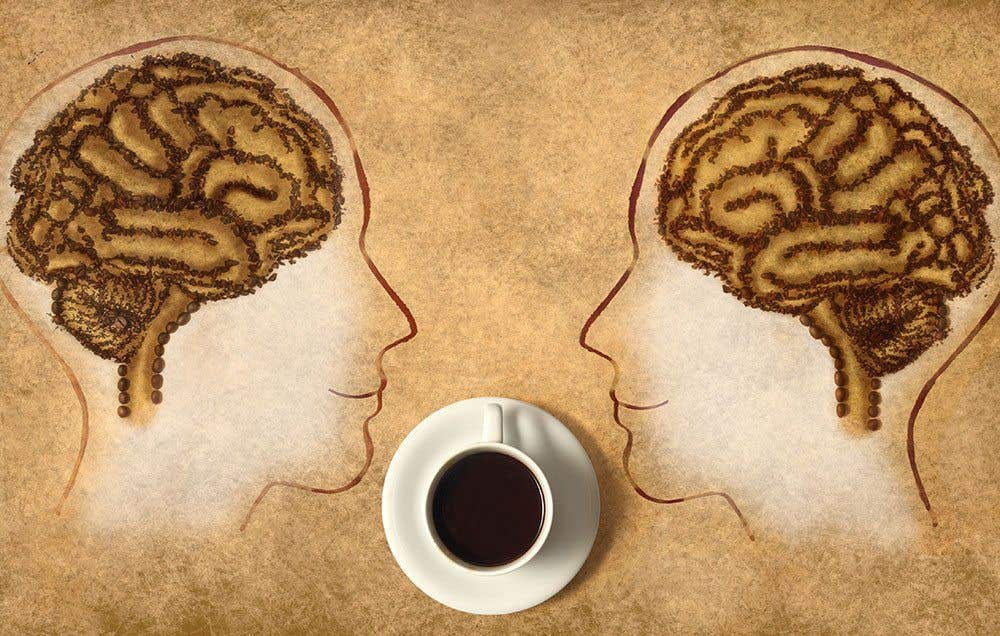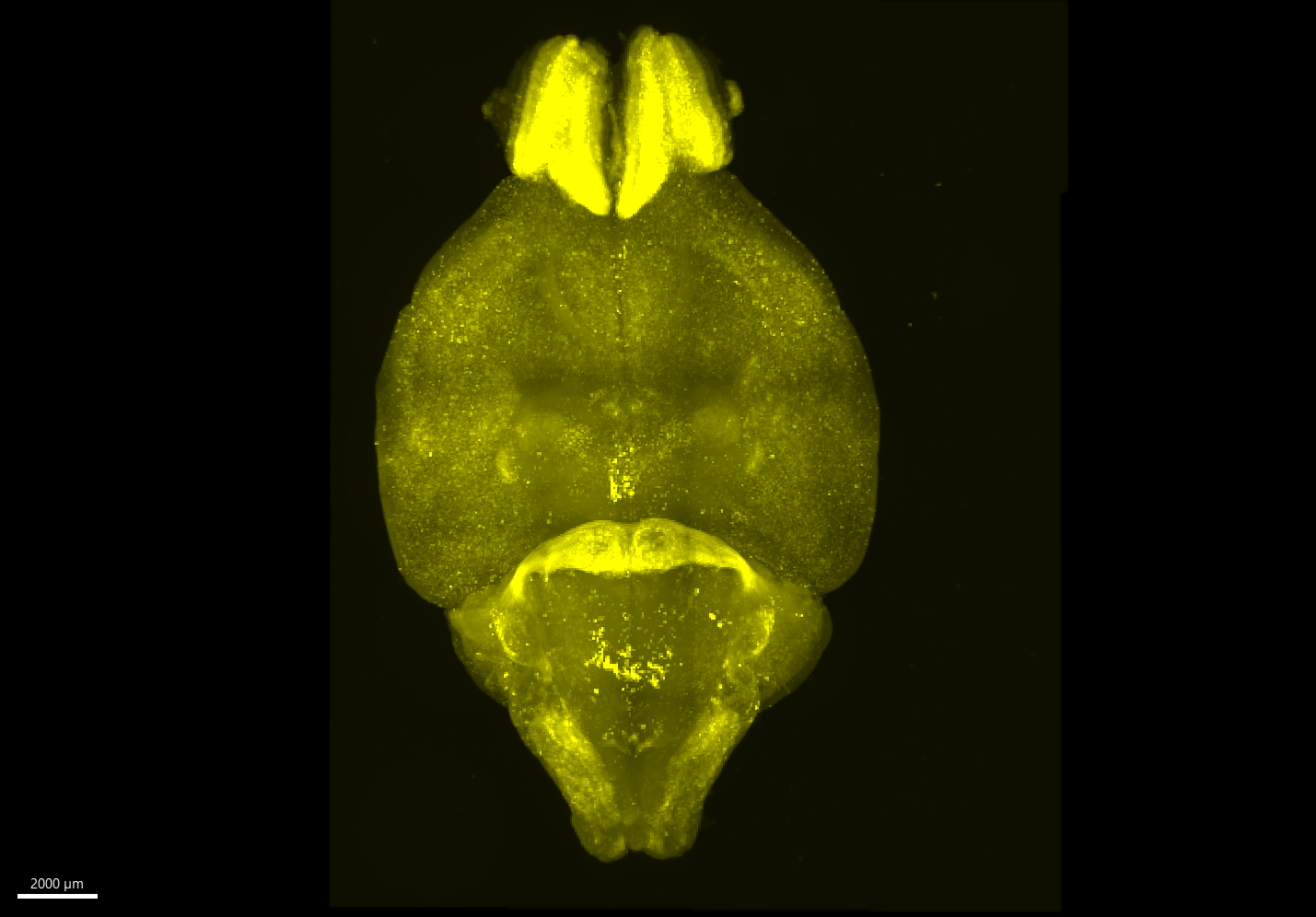New discovery spotlights caffeine’s surprising impact on the brain and learning
Researchers are shedding new light on the impact of chronic caffeine consumption on brain plasticity.

[Nov. 27, 2023: JD Shavit, The Brighter Side of News]
Researchers are shedding new light on the impact of chronic caffeine consumption on brain plasticity. (CREDIT: Creative Commons)
Caffeine, a widely consumed stimulant found in coffee, tea, soda, and various other beverages, has long been recognized for its ability to boost alertness and concentration. However, its effects on the intricate mechanisms of brain plasticity, which govern the brain's adaptability and learning processes, have remained somewhat enigmatic.
In a recent study published in Frontiers in Psychiatry, researchers delved into this question, shedding new light on the impact of chronic caffeine consumption on brain plasticity. The study suggests that long-term caffeine users may exhibit decreased brain plasticity, a phenomenon that plays a pivotal role in the processes of learning and memory when subjected to a specific brain stimulation protocol.
The Complex Relationship Between Caffeine and Brain Plasticity
Prior to this study, existing research on caffeine's influence on brain plasticity had produced mixed results. Some studies hinted that caffeine might hinder the brain's ability to learn and adapt, while others suggested potential benefits. To address this discrepancy, the researchers embarked on an investigation to discern caffeine's effects on human brain plasticity, with a particular focus on its interaction with a neuromodulation technique called repetitive transcranial magnetic stimulation (rTMS).
Related Stories
Long-term potentiation (LTP), a fundamental neurophysiological process associated with synaptic plasticity, served as the focal point of their inquiry. LTP refers to the enduring strengthening of synaptic connections between neurons in response to repeated and persistent stimulation. Meanwhile, rTMS is a non-invasive neurostimulation technique widely employed in neuropsychiatry and neuroscience. It entails the application of magnetic fields to induce electrical currents in specific regions of the brain.
Megan Vigne, a neuromodulation research assistant at Butler Hospital, and Joshua C. Brown, director of the Brain Stimulation Mechanisms Laboratory at McLean Hospital, led the research effort. They expressed their motivation, stating, "Our research has the potential to prompt a new wave of research evaluating chronic caffeine use in patients undergoing rTMS therapy."
The study hinged on the analysis of data from two previously conducted experiments involving a total of 20 healthy participants. Among these, 16 were regular caffeine consumers, while 4 abstained from caffeine. Each participant underwent rTMS coupled with d-cycloserine (DCS), a partial agonist of the NMDA receptor. This protocol was chosen as it is believed to induce a process akin to long-term potentiation, a process pivotal for learning and memory.
Difference in response to plasticity protocol for caffeine users and non-users. (CREDIT: Frontiers in Psychiatry)
To gauge the participants' brain responses, the researchers employed a method called motor evoked potentials (MEPs). MEPs function as windows into the brain's plasticity, permitting scientists to observe how the brain changes in response to the applied stimulation.
The results of the study were unexpected. Participants who regularly consumed caffeine exhibited distinctive brain responses compared to non-caffeine users. In the non-caffeine group, the brain demonstrated robust facilitation in response to the stimulation protocol involving DCS and rTMS. However, in the caffeine users, this facilitation was markedly diminished, resembling the brain's response in the placebo group.
Demographic characteristics of study participants. (CREDIT: Frontiers in Psychiatry)
In simpler terms, chronic caffeine users seemed to possess a reduced capacity for the type of brain plasticity closely associated with learning and memory, even though they underwent the same stimulation as their non-caffeine-consuming counterparts. Brown and Vigne elaborated, stating, "Our data suggest that chronic caffeine use may blunt synaptic plasticity, which is accepted as the cellular basis of learning and memory."
The researchers initially hypothesized that chronic caffeine use might enhance brain plasticity, based on prior research indicating caffeine's potential positive effects on memory and synaptic strengthening. Brown and Vigne explained, "Acute caffeine use increases plasticity (as measured by motor evoked potentials) following rTMS... So, we were particularly surprised to see that chronic caffeine use blunted plasticity responses in our motor plasticity assay."
Characteristics of caffeine users. (CREDIT: Frontiers in Psychiatry)
However, this seeming paradox may be attributed to a well-known phenomenon in the brain, known as homeostatic plasticity. Brown and Vigne elucidated, "With chronic exogenous excitation or inhibition, the brain will respond in kind to counteract those effects to remain scalable. This process is called homeostatic plasticity."
Limitations and the Need for Further Research
While the findings of this study offer intriguing insights into the relationship between chronic caffeine consumption and brain plasticity, several limitations should be noted. The study involved a relatively small number of participants who did not regularly consume caffeine compared to the caffeine users, potentially skewing the results. Additionally, the research relied on self-reported caffeine consumption and did not measure the actual caffeine levels in the participants' bloodstreams.
Joshua C. Brown, director of the Brain Stimulation Mechanisms Laboratory at McLean Hospital. (CREDIT: Researchgate)
Brown and Vigne emphasized the need for caution when interpreting the study's results, stating, "It is very important to remember that our findings came from a small sample and really need to be replicated before reaching conclusions." They further noted, "Because caffeine use is so pervasive, more research on its relationship with plasticity is warranted."
The findings, though surprising, underscore the intricacies of the brain's response to chronic caffeine exposure. They also highlight the need for further research to confirm and expand upon these results. As Brown and Vigne aptly put it, "Our research has the potential to prompt a new wave of research evaluating chronic caffeine use in patients undergoing rTMS therapy," paving the way for a deeper understanding of the complex relationship between caffeine and brain plasticity.
Note: Materials provided by The Brighter Side of News. Content may be edited for style and length.
Like these kind of feel good stories? Get the Brighter Side of News' newsletter.



